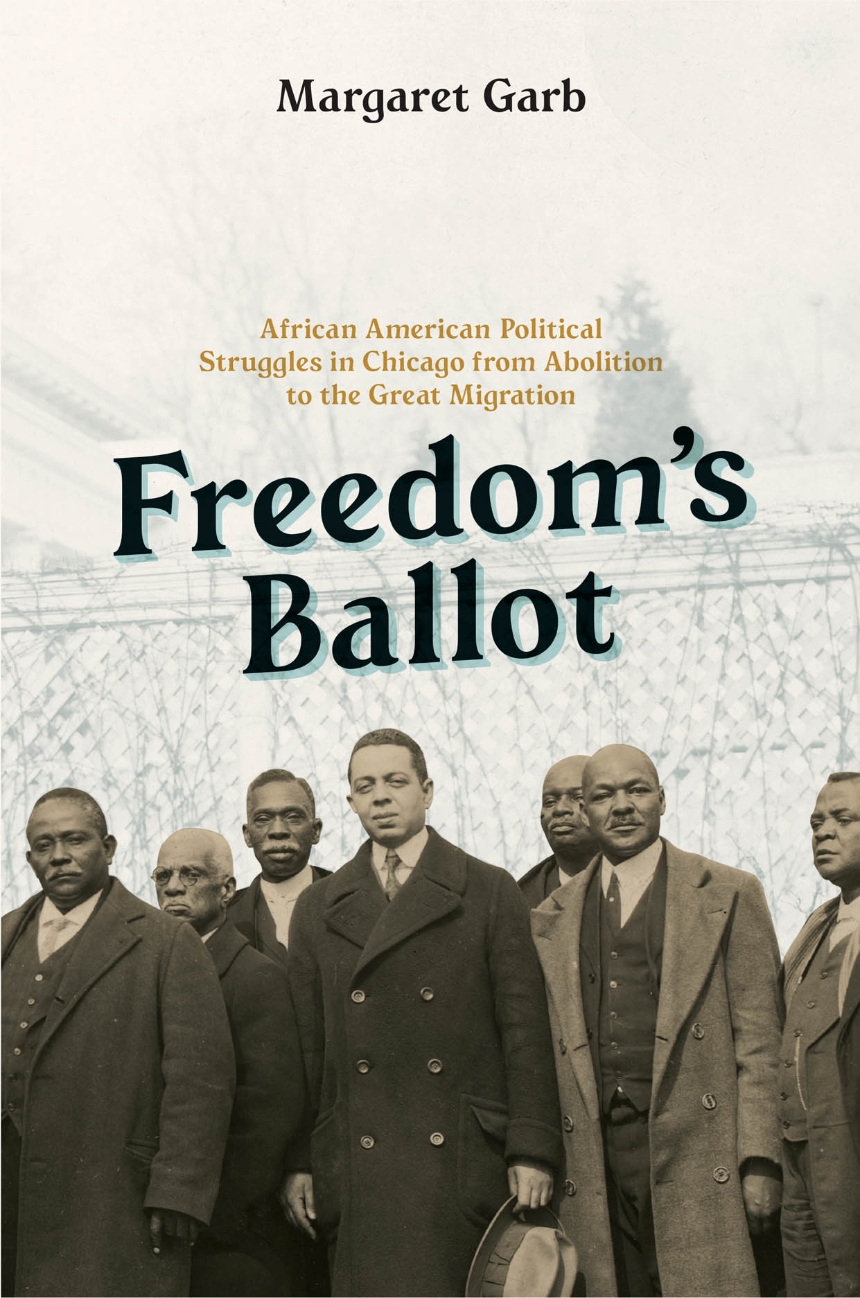Freedom’s Ballot
African American Political Struggles in Chicago from Abolition to the Great Migration
9780226135908
9780226136066
Freedom’s Ballot
African American Political Struggles in Chicago from Abolition to the Great Migration
In the spring of 1915, Chicagoans elected the city’s first black alderman, Oscar De Priest. In a city where African Americans made up less than five percent of the voting population, and in a nation that dismissed and denied black political participation, De Priest’s victory was astonishing. It did not, however, surprise the unruly group of black activists who had been working for several decades to win representation on the city council.
Freedom’s Ballot is the history of three generations of African American activists—the ministers, professionals, labor leaders, clubwomen, and entrepreneurs—who transformed twentieth-century urban politics. This is a complex and important story of how black political power was institutionalized in Chicago in the half-century following the Civil War. Margaret Garb explores the social and political fabric of Chicago, revealing how the physical makeup of the city was shaped by both political corruption and racial empowerment—in ways that can still be seen and felt today.
Freedom’s Ballot is the history of three generations of African American activists—the ministers, professionals, labor leaders, clubwomen, and entrepreneurs—who transformed twentieth-century urban politics. This is a complex and important story of how black political power was institutionalized in Chicago in the half-century following the Civil War. Margaret Garb explores the social and political fabric of Chicago, revealing how the physical makeup of the city was shaped by both political corruption and racial empowerment—in ways that can still be seen and felt today.
304 pages | 11 halftones, 4 maps | 6 x 9 | © 2014
History: American History, Urban History
Political Science: Race and Politics
Reviews
Table of Contents
INTRODUCTION / From Party to Race
ONE / History, Memory, and One Man’s Vote
TWO / Setting Agendas, Demanding Rights, and the Black Press
THREE / Women’s Rights, the World’s Fair, and Activists on the National Stage
FOUR / Challenging Urban Space, Organizing Labor
FIVE / Virtue, Vice, and Building the Machine
SIX / Representation and “Race Men”
EPILOGUE / Film, History, and the Birth of a Black Political Culture
Acknowledgments
Appendix 1: African American Political Leaders, 1870–1920
Appendix 2: Election Results for Mayoral and Aldermanic Candidates in the First, Second, and Third Wards, 1900–1920
Notes
Index
ONE / History, Memory, and One Man’s Vote
TWO / Setting Agendas, Demanding Rights, and the Black Press
THREE / Women’s Rights, the World’s Fair, and Activists on the National Stage
FOUR / Challenging Urban Space, Organizing Labor
FIVE / Virtue, Vice, and Building the Machine
SIX / Representation and “Race Men”
EPILOGUE / Film, History, and the Birth of a Black Political Culture
Acknowledgments
Appendix 1: African American Political Leaders, 1870–1920
Appendix 2: Election Results for Mayoral and Aldermanic Candidates in the First, Second, and Third Wards, 1900–1920
Notes
Index
